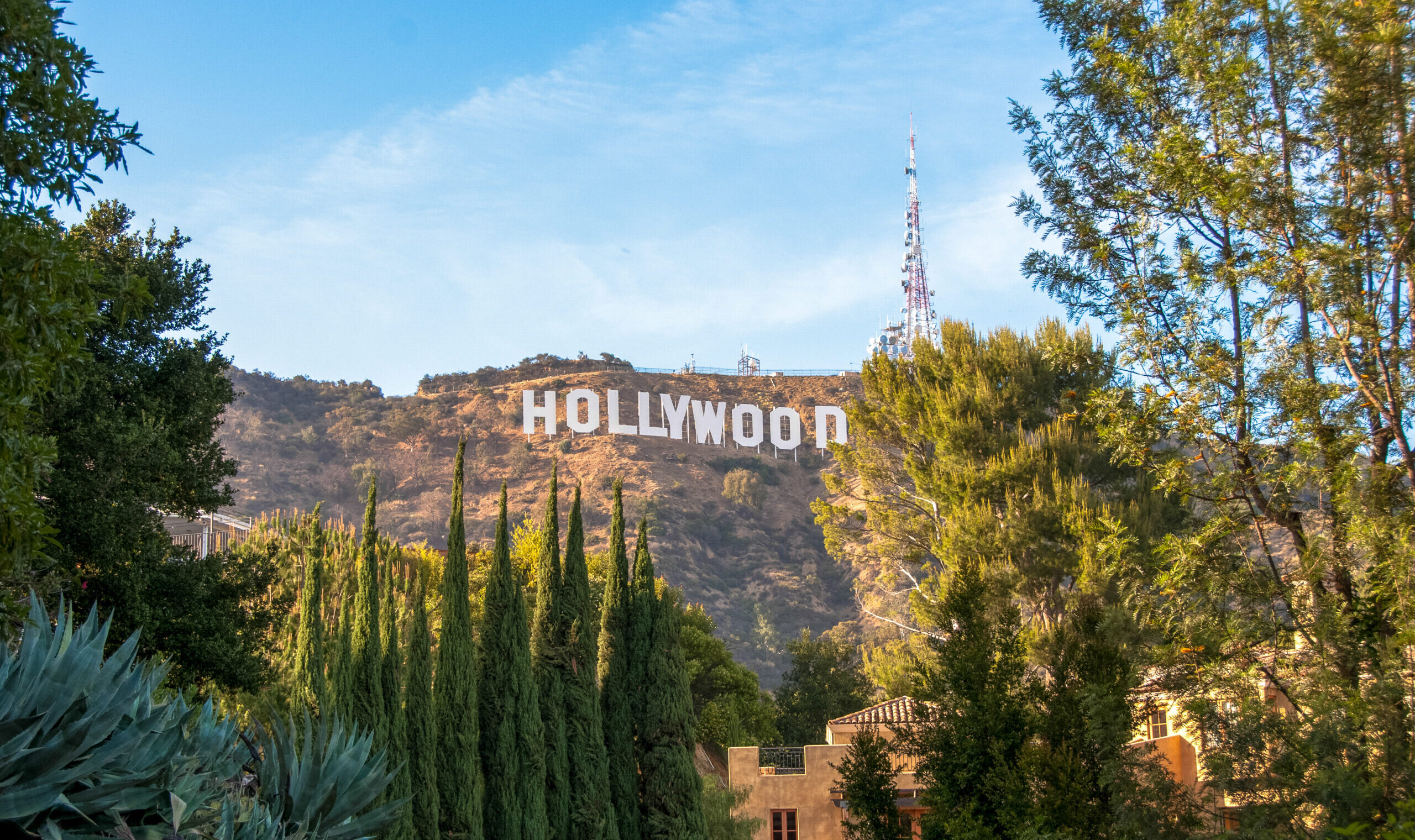
www.theamericanconservative.com
Hooray for Hollywood
Politics
Hooray for Hollywood
President Trump wants to Make Tinseltown Great Again.
(By Maks Ershov/Shutterstock)
President Donald Trump is not known for displays of magnanimity, but his offer of a helping hand to flailing and failing studios in Hollywood must be considered just that.
In a Truth Social missive last week, Trump expressed his commitment to the American movie industry by advocating for tariffs on overseas productions—in spite of the fact that the movers and shakers of that same industry are almost universally aligned against the 47th president.
“The Movie Industry in America is DYING a very fast death,” Trump wrote, deploying his inconsistent but strangely intuitive approach to capitalization. “Other Countries are offering all sorts of incentives to draw our filmmakers and studios away from the United States. Hollywood, and many other areas within the U.S.A., are being devastated.”
This is inarguably true—just ask The New York Times, which, in a story dated April 19, issued the following dire dispatch: “In the past few years, as labor costs have grown after two strikes, producers of reality shows, scrappy indie movies and blockbuster films have increasingly turned away from Los Angeles to filming locations overseas.” The story quoted a producer named Beau Flynn: “This is an existential crisis—it’s an extinction event.”
So, uh, Trump was right?
In another illustration of the veracity of the maxim that no good deed goes unpunished, Trump’s valiant attempt to reestablish Southern California as the locus of moviemaking has been met with expressions of bafflement and ridicule among many of those the policy is intended to benefit. “Next year, The White Lotus is going to be set at a Hampton Inn,” carped the insufferable Jimmy Kimmel.
No one can yet judge the efficacy of Trump’s proposed tariff scheme or of the subsequent revelation of other proposed measures in furtherance of Golden State-based movie production, including federal tax credits. What is clear, however, is that Trump’s preference for Hollywood-based moviemaking has a strong historical precedent—one that makes him an almost hilariously unlikely fellow traveler with some of the great film critics of the last century.
In The American Cinema: Directors and Directions, 1929-1968—his classic text on the major (and minor) practitioners of Hollywood cinema—Andrew Sarris attacked the erroneous notion, popular among some critics, that foreign films were, by some sort of holy writ, superior to those made in Hollywood. Acknowledging the “serious cults of the foreign film,” Sarris nonetheless wrote, “Film for film, Hollywood can hold its own with the rest of the world. If there have been more individualized works from abroad, there have also been fewer competent ones.”
To be sure, Sarris’s list of “pantheon directors”—that is to say, the very best filmmakers to have produced movies in this country—included those born overseas, including Alfred Hitchcock (born in England), Fritz Lang (born in Vienna), and Ernst Lubitsch (born in Germany). Note, however, that all three men eventually pulled up stakes for Hollywood, where, most would agree, they produced their most richly conceived, fully realized, and widely remembered work.
For example, Hitchcock’s British-made The 39 Steps and The Lady Vanishes are undeniable charmers, but it took the resources of Paramount Pictures to produce a masterpiece like Vertigo. In the words of Lubitsch, whose own stint in Tinseltown resulted in the classic romantic comedies Ninotchka, The Shop Around the Corner, and Cluny Brown, “There is Paramount Paris and Metro Paris, and of course the real Paris. Paramount’s is the most Parisian of all.”
My own preference for American-made movies owes something to the influence of Peter Bogdanovich, the great director of The Last Picture Show and Paper Moon who, operating as a sometime-film historian and enthusiast, followed closely in the footsteps of the pro-Hollywood Sarris. Because I knew and interviewed Peter for nearly twenty years, I was often on the receiving end of his expressions of distaste for what he considered the pernicious influence of European movies on the work of his contemporaries, including Francis Ford Coppola.
“The ones who were influenced most by the European cinema, which I think is a disastrous influence, those were the guys who somehow felt that success was equated with compromise and artistic failure,” Bogdanovich once told me. “Like Antonioni wasn’t commercial, so he was good. Well, to me Antonioni was a big bore.”
Bogdanovich’s mentor Orson Welles (a native of Kenosha, Wisconsin) once chided his mentee about his antipathy toward foreign movies. “Simply because it didn’t happen on the banks of the Mississippi, it’s obscure and arty,” Welles said, mercilessly needling Bogdanovich during one of their famous interviews. “You mustn’t be asked about anything that isn’t, you know, Judge Shit on the Range or something—.”
Welles may have won the argument through his incisive sense of humor, but, in the fullness of time, Bogdanovich won the war: Which would you rather watch—a lugubrious, pretentious transmission from the arthouses on the continent or a profoundly artful yet sublimely simple Western like John Ford’s Stagecoach, Howard Hawks’s Rio Bravo, or Clint Eastwood’s Pale Rider? I rest my case. To the extent that motion pictures are a popular art form, the American virtues of clarity, directness, and elegance will always (ahem) trump the continental tendency to obfuscate. In other words, not only do Hollywood workers need more (and better) movies made in Hollywood—so do we, the audience.
In fact, Trump’s pro-Hollywood argument is nothing more than a MAGA-tinged restatement of the following assertion by Martin Scorsese, speaking in the 1990 documentary Hollywood Mavericks: “The legacy of the American film is a constant well—a constant refreshing, something to look forward to. Even if it’s a re-viewing of an old favorite, somehow some of the things over the years grow richer.”In this instance, Trump’s only crime is to wish to rekindle one of America’s proudest cultural legacies.
The post Hooray for Hollywood appeared first on The American Conservative.














